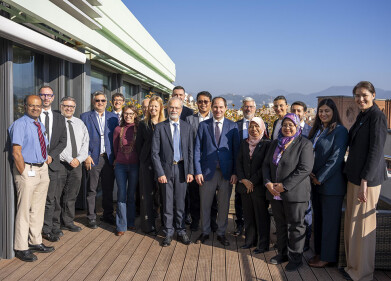Air clean up
Does Pollution Affect Intelligence?
Mar 13 2015
We all know that pollution is bad for our health, but can it affect our intelligence? A recent study says yes!
Spanish Study on pupils and air pollution
In Spain, a year-long study tested 2,715 children across 39 schools for memory and attentiveness. The study, published in PLOS Medicine, was conducted by researchers at the Centre for Research in Environmental Epidemiology in Barcelona. The study used computerized tests to measure changes in both working memory (short term memory) and inattentiveness over 12 months. It revealed that children who attended schools with good air quality tended to fare better than their peers in more polluted areas.
Effect of pollution on memory and attentiveness
The study found that children attending schools in areas with clean air showed an average of 11.5% improvement in working memory, compared to 7.4% at schools in poorer air quality areas. The results also showed that children at schools with higher levels of air pollutants experienced smaller increases in cognitive skills, than those attending schools with lower pollutant levels.
Primary school children and car pollution
The study is one of the first to link pollution to lower cognitive development. It also comes at a time when the British Government faces questions of breaking EU laws on air quality. The researchers have warned that although the study focused on primary children, the effects of pollution could have far-reaching problems: “The findings suggest that the developing brain may be vulnerable to traffic-related air pollution well into middle childhood,” researchers said.
The toxic compounds in traffic-related pollution
The chemicals in air pollution that are associated with traffic are called neurotoxicants, and have previously been linked to higher risks of schizophrenia, ADHD, autism and even suicide. They are also related to breathing problems such as asthma and lung diseases. This is the first time however, that neurotoxicants have been connected to a detrimental effect on intelligence.
Results on air pollution and intelligence not conclusive
The study did advise that although there was a correlation between poor air quality due to traffic-related pollution, other characteristics may have had some bearing on the results.
The study stressed that what was important was the study showed the developing brain in children could be vulnerable to traffic-related air pollution Not only this but that the vulnerability could impact well into middle childhood.
With this in mind, there should be a clearer strategies and regulations when it comes to the location of primary and middle schools.
Who should take responsibility for air pollution?
Some experts think governments should do more. Alan Andrews, of Client Earth, said: “Sadly, instead of protecting children the Government is fighting against its legal responsibilities.”
However, the UK’s Department for Environment, Food and Rural Affairs said: “Air quality has improved significantly in recent decades and we are investing heavily in measures across government to continue this, committing £2billion since 2011 in green transport initiatives.”
The history of pollution
Believe it or not, the effects of air pollution have been a concern for city dwellers since the thirteenth and fourteenth centuries. In 1273, the use of coal was prohibited, then in 1306 a law was passed to stop the use of certain types of coal due to complaints about air quality in London. Fast-forward 740 years, and the quality of air in London is still a concern. For more information, read: The History of UK Air Pollution! Looking Back through Smog Tinted Glasses.
Events
Jan 12 2025 Abu Dhabi, UAE
Carrefour des Gestions Locales de L'eau
Jan 22 2025 Rennes, France
Jan 29 2025 Tokyo, Japan
Feb 05 2025 Nantes, France
Feb 16 2025 Kampala, Uganda














